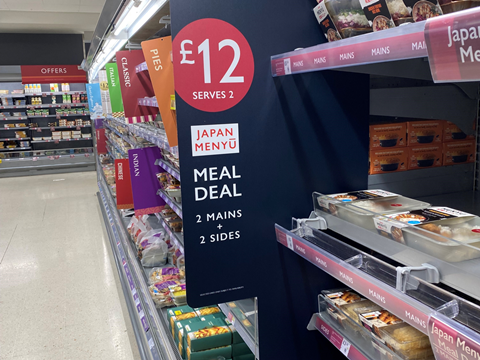
Antalis has unveiled Priplak R30, a white and coloured polypropylene range containing 30% post-industrial recycled content – intended for use in packaging, labels, point-of-sale displays, and more.
Apparently, Priplak R30 is 35% lighter than PVC and cuts down on raw material consumption. It is designed for tear-resistance, durability throughout a long life span, and reusability.
Antalis continues to assert that the range is free from both halogens and phthalates. By avoiding chlorine and plasticizers, it hopes to minimize negative impacts on human health, wildlife, and plants.
Priplak R30 is also described as safe to use, chemically inert, and non-reactive, further reducing environmental and human health risks.
At end-of-life, the polypropylene is said to be 100% recyclable – and suitable for repeated recycling without loss of quality or strength. Alternatively, Antalis claims that the material can be burned without releasing toxic emissions.
Geared towards the visual communications sector, the range – available in a white finish, 450 and 750 mic thicknesses, and a sheet size of 650 x 1100mm – is recommended for use in packaging, tags and labelling, signage, point-of-sale displays, and folders and stationery.
Paul Neale, product manager at Antalis, comments: “The versatility and sustainable benefits of products like Priplak made of polypropylene have resulted in it being one of the most rapidly growing sustainable polymers produced worldwide in recent years, with this trend set to continue. Introducing superior sustainable products such as the new Priplak R30 will increase its popularity.”
The news comes after Antalis revealed a 33% reduction in packaging materials, and the annual reduction of 21 tonnes of CO2 emissions, by testing and re-engineering a client’s shipping cartons. It did so by replacing the original double-wall B/S flute cartons with single-wall C-flute board, which led to 40 more cartons being transported per pallet.
In other news, SABIC has recently provided its high-gloss polypropylene resin containing around 50% ‘ocean-bound’ plastic for use in B!POD’s food-contact vacuum containers. The move is expected to eliminate over 300 plastic bags per person and reduce CO2 emissions by 30kg per capita.
Berry Global also incorporated 50% post-consumer recyclate into a ventilated PE bag solution for construction chemicals company Schomburg. This is expected to result in fewer product losses, a lower carbon footprint, and a 39% reduction in Global Warming Potential.
If you liked this story, you might also enjoy:
The ultimate guide to the Packaging and Packaging Waste Regulation in 2024
How are the top brands progressing on packaging sustainability?
Sustainable Innovation Report 2024: Current trends and future priorities
Everything you need to know about global plastic sustainability regulation














No comments yet